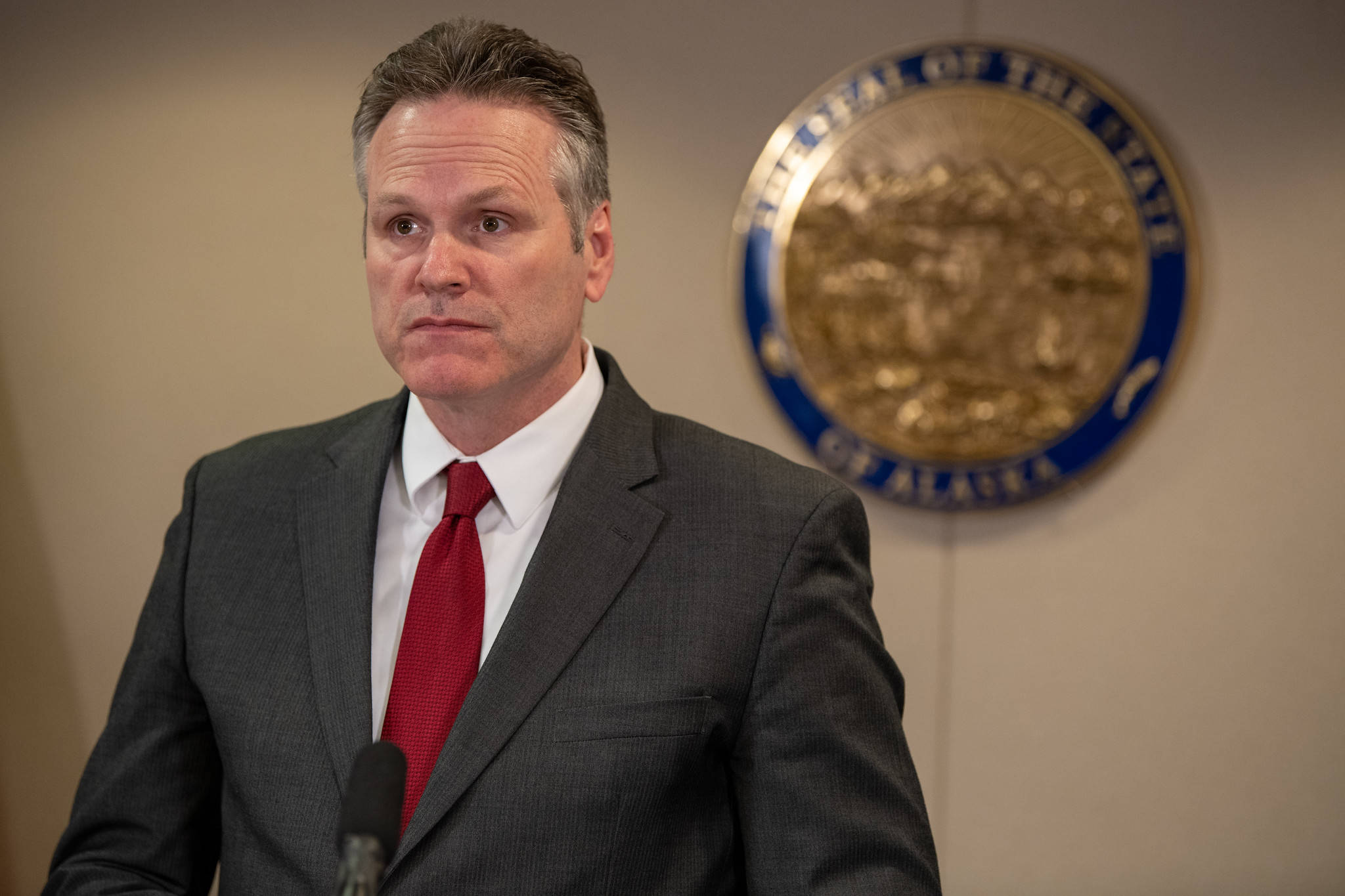Gov. Mike Dunleavy is authorizing $1 billion in disaster relief, he announced at a press conference in Anchorage Friday. The funds were part of the governor’s “Alaska COVID-19 Economic Stabilization Plan” which will expand state unemployment insurance and help emergency health care facilities in addition to a number of other measures, the governor said.
Dunleavy also called on the Legislature to authorize the payment of $1,304 from the 2019 Permanent Fund Dividend as a means of helping Alaskans in a time of economic crisis.
“Never in the last 40 years has payment of the PFD been more critical,” Dunleavy said. “Congress itself is on the verge of enacting its own version of our dividend to get cash into the hands of Americans.”
But where the $1 billion would come from is not immediately clear. In his announcement, Dunleavy said the funds would come from existing state accounts, but did not specify which ones.
“There’s constitutional questions governing that,” said Sen. Bert Stedman, R-Sitka, “when you sweep accounts.”
Stedman, who co-chairs the Senate Finance Committee, said he was unaware which state accounts the governor intended to use. But, he added, “we have to give the gov the opportunity to lay out his plan full circle.”
[Without changes, GOP lawmakers see little reason to vote for supplemental budget]
Stedman was skeptical of the supplemental PFD payment Dunleavy called for saying he wanted to be prudent while working through the COVID-19 crisis.
“We need to be careful that we don’t have a political reaction,” he said, “We don’t want to replicate what the federal government’s already doing.”
To the governor’s call for $1 billion in disaster relief, Stedman said he wanted to consult with the state’s accountants, the Office of Management and Budget, before moving ahead.
In his address, Dunleavy said leaders were working across party lines, but in the Legislature, the vote for the supplemental budget failed by just two votes due to partisan differences.
Member of the Republican House Minority said they felt the budget sent back to them by the Senate was too bloated and took none of their priorities into account.
The House could vote to rescind their supplemental budget vote and if that vote were to fail again the bill would be sent back to the Senate.
Asked if the Senate would be willing to consider reworking the bill if that were to happen, Stedman said bluntly; “No, we’re done with it.”
“We’re trying to get the operating budget and get out of here,” Stedman said.
Both the House and Senate have floor sessions scheduled for Saturday, and Stedman said he intends to move the operating budget bill through the Senate Finance Committee and get it to the floor as soon as possible.
To expedite the process, Stedman said the state’s capitol budget would be included in the bill for the operating budget.
“We plan on doing the capitol budget and the operating budget and leaving town,” he said, accusing the House minority of partisanship. “They’re twiddling around playing politics. There’s nothing wrong with that supplemental, but we have to pay our bills.”

